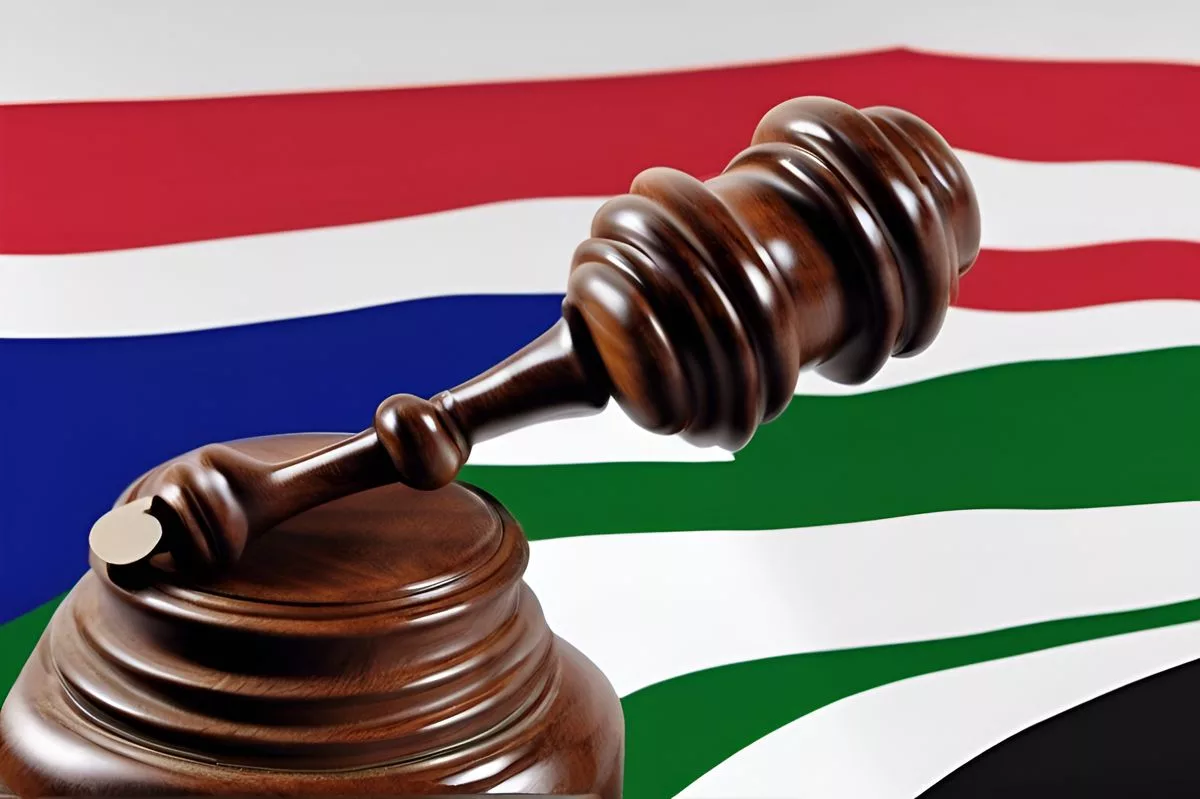The upcoming elevation of Justice Maya represents a historic change in South Africa’s judicial landscape, instilling hope and empowerment for women across the nation. South Africa’s judiciary is about to witness a pioneering moment as Mandisa Maya prepares to become the first black woman to preside over the Constitutional Court. Maya’s appointment as Chief Justice, effective August 31, 2024, follows her groundbreaking role as the first woman to head the Supreme Court of Appeal. President Cyril Ramaphosa recognized Maya’s potential to contribute to the transformation of the judiciary, calling her ascent to the apex court a beacon of determination and transformation towards gender equality.
Who is Mandisa Maya and what is her groundbreaking achievement?
Mandisa Maya is set to make history as the first black woman to preside over South Africa’s Constitutional Court. She will take over the Chief Justice role on August 31, 2024, becoming a beacon of determination and transformation towards gender equality in the judiciary. Maya was the first woman to head the Supreme Court of Appeal before her impending designation as Chief Justice. President Cyril Ramaphosa recognized her potential to contribute to the judiciary’s ongoing transformation process and stressed the significance of her pending ascent to the apex court.
Justice Mandisa Maya: A Future Chief Justice
A groundbreaking event awaits South Africa’s judicial system as Deputy Chief Justice Mandisa Maya is set to climb to the pinnacle of her profession. She is gearing up to become the first black woman to preside over the Constitutional Court, taking over the Chief Justice role once Raymond Zondo’s tenure ends on August 31, 2024.
The Presidential office unveiled this historical appointment in an official announcement. In keeping with Section 174(3) of the Republic’s Constitution, President Cyril Ramaphosa has selected Maya as South Africa’s forthcoming chief justice. This choice followed after consultation with the Judicial Service Commission (JSC) and the heads of various political parties in the National Assembly.
Mandisa Maya’s path to this unprecedented point in her career has been marked by a series of firsts and groundbreaking accomplishments. Before her impending designation as Chief Justice, she was the first woman to head the Supreme Court of Appeal (SCA), setting an example for other women in the judiciary.
The Anticipation of Justice Maya’s Tenure
Maya’s designation is eagerly awaited, with her term set to launch on September 1, 2024. On May 21, 2024, the Judicial Service Commission declared their backing for Maya, further boosting her prospects of becoming South Africa’s first woman Chief Justice.
Maya’s endorsement by the JSC was not unexpected, given that she was the only candidate interviewed for the post. This made her a highly probable candidate to make history, and post-interview, the JSC did not hesitate to suggest to the president that Deputy Chief Justice Maya was apt for the top role.
In an interesting twist, it was not the first instance where the Commission had advocated for Maya as the chief justice. In June 2022, the Commission had proposed her name following a sequence of interviews in Sandton. However, Ramaphosa had chosen Zondo to lead the ConCourt instead. Despite this, Maya’s career path continued its upward trajectory. At that time, she was the SCA leader and was subsequently appointed as deputy chief justice.
President Ramaphosa’s Significant Decision
President Ramaphosa’s decision to nominate Maya as Deputy Chief Justice in July 2022 was of substantial importance. He recognized her potential to contribute to the judiciary’s ongoing transformation process. He stressed the significance of her pending ascent to the apex court as a symbol of hope for young women, instilling in them the belief in the opportunities South Africa provides, irrespective of gender, social or economic conditions.
The upcoming elevation of Justice Mandisa Maya to the role of Chief Justice signifies a historic change in South Africa’s judiciary landscape. Her appointment is a crucial stride towards gender equality and is symbolic of the value of diversity in the supreme levels of judicial authority.
Justice Maya: A Beacon of Determination and Transformation
In this period of pivotal transformation, Maya’s journey is a testament to her unwavering determination, resilience, and legal prowess. As she readies herself to head the Constitutional Court, her narrative serves as a potent reminder of the advances South Africa has made towards gender equality.
Her story is a testimony to the fact that the nation can truly be a land of opportunities for all, regardless of gender, social or economic conditions. Her upcoming appointment as Chief Justice embodies the transformation and progress of South Africa’s judiciary system while inspiring and empowering women across the nation.
What is the significance of Justice Maya’s appointment as Chief Justice?
Justice Maya’s appointment as Chief Justice is a historic moment for South Africa’s judiciary, as she will become the first black woman to preside over the Constitutional Court. Her impending elevation to the apex court signifies a pioneering moment, instilling hope and empowerment for women across the nation. President Cyril Ramaphosa recognized her potential to contribute to the transformation of the judiciary, calling her ascent to the top role a beacon of determination and transformation towards gender equality.
What was Maya’s role before her designation as Chief Justice?
Before her appointment as Chief Justice, Mandisa Maya was the Deputy Chief Justice of South Africa. She was also the first woman to head the Supreme Court of Appeal, setting an example for other women in the judiciary. Her path to this unprecedented point in her career has been marked by a series of firsts and groundbreaking accomplishments.
When will Justice Maya take over as Chief Justice?
Justice Maya will take over as Chief Justice on August 31, 2024, following the end of Raymond Zondo’s tenure.
Was Maya the only candidate interviewed for the post of Chief Justice?
Yes, Mandisa Maya was the only candidate interviewed for the post of Chief Justice. This made her a highly probable candidate to make history, and the Judicial Service Commission did not hesitate to suggest to the president that she was apt for the top role.
What was the significance of President Ramaphosa’s decision to nominate Maya as Deputy Chief Justice?
President Ramaphosa’s decision to nominate Maya as Deputy Chief Justice in July 2022 was of substantial importance. He recognized her potential to contribute to the judiciary’s ongoing transformation process and stressed the significance of her pending ascent to the apex court as a symbol of hope for young women, instilling in them the belief in the opportunities South Africa provides, irrespective of gender, social or economic conditions.
What does Justice Maya’s appointment signify for gender equality in the judiciary?
Justice Maya’s appointment as Chief Justice signifies a crucial stride towards gender equality and is symbolic of the value of diversity in the highest levels of judicial authority. Her upcoming elevation to the apex court instills hope and empowerment for women across the nation, proving that South Africa can truly be a land of opportunities for all, regardless of gender, social or economic conditions.












